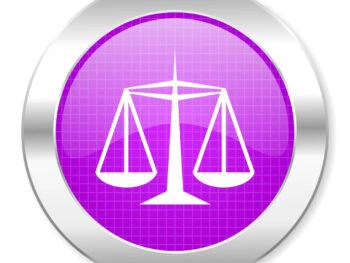Sometimes when an occupational injury occurs, it seems like a no-brainer that it would be an accepted workers comp claim. The question often comes up when an acute injury occurs if the employer should ok the claim, even though there may not be details or information right at hand? The investigation that the adjuster performs can take several days to complete, if not longer, depending on the extent of the injury.
The idea of accepting a claim without prejudice will occur in certain jurisdictions more than others. It all depends on how the comp act is read within the jurisdiction where the workplace is located. Here are a few things to look out for:
1. The injury seems to be acute
If a worker drops a 50lb piece of equipment on their foot and falls to the ground in pain, it is quite obvious medical attention is needed. Chances are this claim will be accepted as compensable without any major issues. It is possible that safety protocol may be to blame for the incident, but any defenses as an adjuster will depend on the jurisdictional statutes. Even in the most conservative states, the bottom line is if the worker is in the course and scope of employment and doing a duty that is of benefit to the employer, the claim is compensable. It maybe safe in this example to say the adjuster would OK the claim based on merit alone, but this is not always the case. The fact of the who, what, where, when, why, and how the injury happened may come into play later on in the claim which could lead to a suspension of benefits, or an overall denial.[WCx]
2. The injury is witnessed
A lot of workers are under the belief that just because someone directly saw the injury happen it means claim will be compensable. This is not always the case. It helps to validate the claim, but that does not make it pass the criteria to make it compensable. I am not aware of workers comp laws in any state that directly say “If any injury were to be witnessed it is automatically compensable.” A witness statement has to be applied and the validity of the claim determined on a case by case basis when it comes to overall compensability.
3. The worker sustains a hernia or herniated disc. Does that make it automatically compensable?
Of course, it does not. If there are 50 people randomly selected out of the general public of varying age, a good percentage of those people may have disc problems, or umbilical hernias, that may or may not cause any noticeable medical problems. The diagnosis of a hernia or herniated disc makes adjusters cringe because there will now be a complex claim that will require a lot of medical investigation, and a lot of work to gather evidence to show why or why not that particular diagnosis is or is not occupational in nature.
4. Investigation on the employer’s side of the claim points to the claim is compensable, so does that make it compensable?
No it does not. The employer’s investigation and opinion is only one aspect of the claim. There is still the employee’s story, the story of the involved witnesses, the medical story, and the legal support of the claim. All of these involved parties and the overall completion of the investigation of the claim will tell the story about if the claim will be accepted or not.
Sometimes there are claims where the employer’s investigation and the statement made by the employee point to potential compensability, but the medical aspect does not add up. Remember, all of the prongs of the investigation have to point to the claim arising out of the course and scope of employment and arising out of the course and scope of the injury occurring within the stated job duties that the employee was to be performing at the time of injury. If one of the aspects of the claim does not jive with the rest of the claim, the adjuster will file a dispute or suspension with the State in order to try and tie the case together.
In the end, the burden of proof lies on the claimant to show how and why the injury occurred, and how and why that arose out of the course and scope of their employment. The adjuster is not going to go out of their way to try and prove the case for the claimant. No one aspect of the claim can outweigh the other ones; they all have to correlate without conflict. It is only then when a claim will be accepted as compensable. .[WCx]
Summary
The aspect of accepting a claim without prejudice is a risky one. An adjuster cannot accept a claim as compensable based on just one part of the investigation, or the presence of a certain diagnosis. The carrier has the right to stop or suspend benefits and coverage whenever coming across some evidence that may be contrary to what is currently known to be the details of the injury and how/why it occurred. The safe bet is to complete as thorough an investigation as possible, on all prongs of the case. Those prongs being on the employer’s side, on the carrier’s side, on the medical evidence, and on the applicable legal statutes within the jurisdiction that has coverage.
Author Rebecca Shafer, JD, President of Amaxx Risk Solutions, Inc. is a national expert in the field of workers compensation. She is a writer, speaker, and publisher. Her expertise is working with employers to reduce workers compensation costs, and her clients include airlines, healthcare, printing/publishing, pharmaceuticals, retail, hospitality, and manufacturing. She is the author of the #1 selling book on cost containment, Workers Compensation Management Program: Reduce Costs 20% to 50%. Contact: RShafer@ReduceYourWorkersComp.com.
Editor Michael B. Stack, CPA, Director of Operations, Amaxx Risk Solutions, Inc. is an expert in employer communication systems and part of the Amaxx team helping companies reduce their worker’s compensation costs by 20% to 50%. He is a writer, speaker, and website publisher. www.reduceyourworkerscomp.com. Contact: mstack@reduceyourworkerscomp.com.
WORKERS COMP MANAGEMENT MANUAL: www.WCManual.com
Do not use this information without independent verification. All state laws vary. You should consult with your insurance broker or agent about workers comp issues.
©2012 Amaxx Risk Solutions, Inc. All rights reserved under International Copyright Law. If you would like permission to reprint this material, contact us at: Info@ReduceYourWorkersComp.com.















